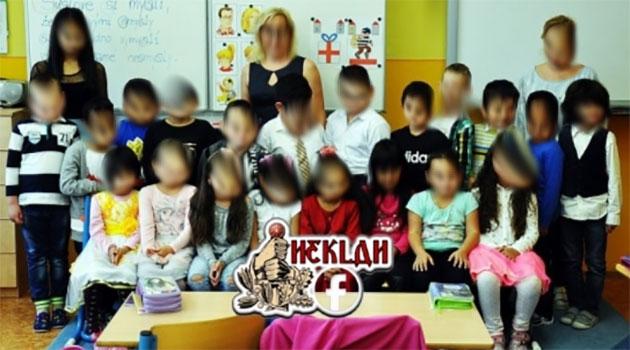Czech expert says haters' attention is fixating on Roma again, "migration" as a subject is over

The Czech Police have been investigating more and more bias crimes involving hatred recently. Does this mean racism is increasing here, on average?
Political scientist Jan Charvát says that in reality, such cases have always existed here, but in the past the public didn’t pay attention to them. At the start of last week a case came before the court of a married couple belonging to the majority group in society accused of assaulting several Romani children.
That case has a very similar beginning to that of the brawl at a swimming pool this summer in Dubí (Teplice district), as a result of which several Romani people have been accused of committing assault – it began as a dispute among children, adults inserted themselves into it very sharply, and their approach to the situation has revealed the dominant tensions between the majority and the minority here. Charvát, who is an expert on political extremism, believes these cases do not, however, indicate that there is room for the situation in the coexistence of the majority and Romani people to become more dramatic.
Even though nobody involved with the extremist scene was involved in either case, Charvát does not believe escalation of inter-ethnic tensions is on the horizon. “In the Czech Republic, for a long time, the idea has been established that there are extremists here who commit crime with an extremist subtext and who are followed by the Interior Ministry – and then there is another group of ‘normal’ people. The Interior Ministry has stuck to that model, but today such a concept is unsustainable, also from the perspective of the ministry, which is now abandoning it, or rather, is gradually augmenting it with the concept of hate crime,” Charvát, who is the author of several publications about extremism, told news server SeznamZprávy.cz.
“We have long known that some of the crime aimed against minorities is not committed by people from extremist groups, but by absolutely normal, ordinary people who have never been part of any extremist organization and therefore were never followed by the Interior Ministry. Today what we are seeing is not a fundamental change – the situation is the same as it has ever been – but we have realized that our perspective has been erroneous, and now this is being demonstrated and manifested absolutely unequivocally,” the political scientist said.
Populists who are working with ideas of ethnic exclusivity (or any other kind), according to Charvát, are beefing up such sentiments in society: “Many normal people who are not associated with any concrete group comprehend [populist messaging] as the legitimization of anything possible, including violence. We are seeing that this leads to a growth in violence.”
The political scientist notes that when the “migration crisis” arrived as a topic in the Czech media in 2015, discussion of Romani people absolutely came to a halt. Now that the discussion of the “migration crisis” is fading, matters are returning to the public conversation that are associated with Romani people.
Charvát is convinced that the number of people in the Czech Republic who are willing to go as far as committing violence has long been rather constant: “Now, in the aftermath of the ‘migration crisis’ and the enormous space for debate dominated by such topics, [violence] has increased slightly, but I do not think it has increased fundamentally. Many such things usually happen all the time, but we have not been paying attention to them.”
